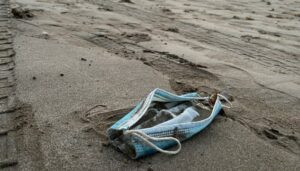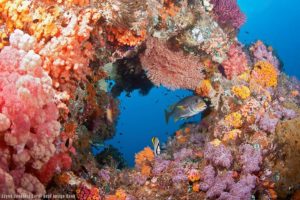- Plastic Water Bottles to a Glass/Steel Reusable Water Bottle
This is one of the first things you can do to start your eco-friendly lifestyle! Replacing plastic water bottles will help the environment because you will be throwing out less waste and non-biodegradable plastic onto our planet. For every 6 plastic bottles people purchase, only 1 gets recycled. Plus, the bottles in landfills will photodegrade instead and it will take up to 1,000 years for it to decompose leaking pollutants into the soil and water too. So definitely replace those plastic bottles for one that will help our environment!
Here are a few things to look for in your water bottle:
- BPA-free
- Non-toxic
- Recyclable
- Reusable/Durable
Pretty simple right? Also, you have many options to choose from too that are healthy for you and for our earth. For example, stainless steel, renewable bamboo, glass, or recyclable aluminum just to name the iconic ones.
Just be sure to know where it’s coming from and sometimes, companies that sell these fantastic water bottles will also donate/support organizations that help fight climate change, sustainable projects that help clean water for developing countries, and many important movements that will also benefit in those areas just because you bought one of their water bottles. So be sure to keep a lookout for those cool extra benefits for the environment and communities!
And if you aren’t able to get a stainless steel water bottle now, you can always recycle your plastic bottles for now and pick up other ones lying on the floor if you happen to past by them on a walk.
- Borrow Items From Someone Else or Pass Them On
Borrowing books from other students or giving away your notes from a previous class to other students can greatly help the environment in reducing waste and it reuses them for more purposes. Since you/they have already taken those notes why not give them away to someone who will need them next?
However, this will only work if the teacher doesn’t require you to take the notes and turn them in for credit, but if it’s possible, do inform them that this is crucial in helping the planet. This also saves energy to make more paper, pencil lead, and journals. In addition, it helps your peers and underclassmen because they don’t have to get new materials or take more of the same notes.
This isn’t the only thing that you can also pass along to others. You can also give away your pencils, color pencils, erasers that weren’t used, note cards, color utensils, pens, lined or copy papers, journals that still have a ton of paper in it, binders, scratch papers, notepads, blank poster boards leftover from projects, scissors, glue, tape, craft materials, folders in good shape, or pretty much anything that you don’t need or use anymore.
Or you can check out your local library (or online) to borrow textbooks/materials before thinking of purchasing anything. Remember, buying more things results in companies making more waste for landfills in the future. So make the most out of everything!
Lastly, but not least, are hand-me-down clothes. Especially those P.E. uniforms that you’ll never need again after you’ve completed all your physical education credits. BUT! Before you give them away, make sure they are cleaned and not dirty, that goes with pretty much anything you give away. (be courteous too!)
So go help out a friend, the ecosystem, and yourself because you are getting rid of things you don’t need anymore!
Cited:
“BENEFITS OF CARPOOLING.” Uottawa, www.uottawa.ca/parking/carpooling/benefits-of-carpooling#:~:text=Carpooling%20offers%20many%20benefits&text=Not%20only%20will%20you%20be,air%20pollution%20related%20health%20costs.&text=Having%20fewer%20cars%20on%20the,emissions%20and%20improved%20air%20quality.
Green America. “Carpool for the Climate and Community.” Green America, www.greenamerica.org/green-living/carpool-climate-and-community.
Healthy Human. “Plastic Water Bottle Pollution: Where Do All the Bottles End Up?” Healthyhumanlife, healthyhumanlife.com/blogs/news/plastic-water-bottle-pollution-plastic-bottles-end.

